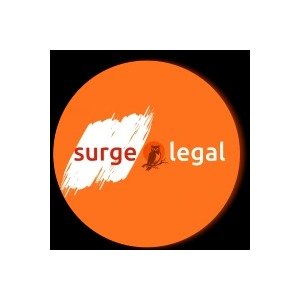Best Probate Lawyers in Gordon
Share your needs with us, get contacted by law firms.
Free. Takes 2 min.
List of the best lawyers in Gordon, Australia
About Probate Law in Gordon, Australia
Probate is a legal procedure that validates a decedent's Last Will and Testament, and it grants authorization to the executors to carry out the wishes of the deceased person as detailed in the Will. In Gordon, a region in Australia, Probate falls under the jurisdiction of the Supreme Court of New South Wales. Probate law provides a structured process to ensure a fair distribution of the deceased's assets among the beneficiaries and to settle any debt or tax obligations.
Why You May Need a Lawyer
Engaging a lawyer for Probate is advisable for various reasons. Firstly, navigating through the complexities of Probate Law can be challenging without legal guidance. Secondly, if the validity of the Will is disputed, a lawyer can provide the necessary legal assistance. Lastly, Probate involves considerable paperwork, compliance with the Probate Rules, and ensuring timely submissions, which can be managed efficiently by an experienced lawyer.
Local Laws Overview
The key aspects of Probate laws in Gordon, Australia, are governed by the Probate and Administration Act 1898 (NSW) and the Supreme Court Act 1970 (NSW). The law requires any assets in New South Wales to be handled according to the stipulations in the deceased's Will. If there is no valid Will, the succession rules of intestacy apply. The Probate process can begin only after 14 days from the death of the decedent. The estate cannot be administered without the Court's grant of Probate or Letters of Administration, especially in cases of property and large estates.
Frequently Asked Questions
What happens in the absence of a valid Will?
If a person dies without leaving a valid Will, they are deemed to have died "intestate". The estate of an intestate person will be distributed in accordance with state laws, typically to closest relatives.
Can Probate be skipped?
Small estates with assets that are jointly owned and pass directly to a surviving joint owner might be managed without a grant of Probate. However, larger estates involving real estate usually require Probate to be transacted or sold.
How long does the Probate process take?
The duration of the Probate process varies, depending on the complexity of the estate but it commonly takes several months to over a year.
Who can apply for Probate?
Typically, the executor named in the Will applies for Probate. If there is no Will, or the named executor cannot or would not wish to apply, then the next of kin or an administrator can apply.
What does an executor do?
An executor is a person named in the Will who has the responsibility to manage the deceased's estate in accordance with the instructions in the Will. This includes lodging the Probate application, gathering the estate's assets, paying any debts and distributing the remaining assets to the beneficiaries.
Additional Resources
The Supreme Court of New South Wales publishes resources related to Probate Law including application forms and guidelines. The Law Society of New South Wales also provides resources related to Probate matters.
Next Steps
If you require legal assistance with Probate, consider seeking advice from a lawyer who specializes in this field. Preparing an inventory of the deceased’s assets can be a good start. Also, compile any available information regarding the beneficiaries and their contact details, as this will be necessary through the Probate process.
Lawzana helps you find the best lawyers and law firms in Gordon through a curated and pre-screened list of qualified legal professionals. Our platform offers rankings and detailed profiles of attorneys and law firms, allowing you to compare based on practice areas, including Probate, experience, and client feedback.
Each profile includes a description of the firm's areas of practice, client reviews, team members and partners, year of establishment, spoken languages, office locations, contact information, social media presence, and any published articles or resources. Most firms on our platform speak English and are experienced in both local and international legal matters.
Get a quote from top-rated law firms in Gordon, Australia — quickly, securely, and without unnecessary hassle.
Disclaimer:
The information provided on this page is for general informational purposes only and does not constitute legal advice. While we strive to ensure the accuracy and relevance of the content, legal information may change over time, and interpretations of the law can vary. You should always consult with a qualified legal professional for advice specific to your situation.
We disclaim all liability for actions taken or not taken based on the content of this page. If you believe any information is incorrect or outdated, please contact us, and we will review and update it where appropriate.








